
Recuerdo escuchar house music desde que era pequeña, mis tías, tíos, y hermanas lo tocaban todo el tiempo; en la casa, fiestas, el carro, en sus cassette players, anywhere you can listen to music, house music was playing. As I got older, house music expanded into juke music, I remember sneaking into dark basements finding a cutie and juking with them against the wall. Once the lights came on there were blue stains all over the walls (haha, just kidding mom, this didn’t happen)…but it happened to many of us. House Music me ha acompañado toda mi vida y la vida de muchos.
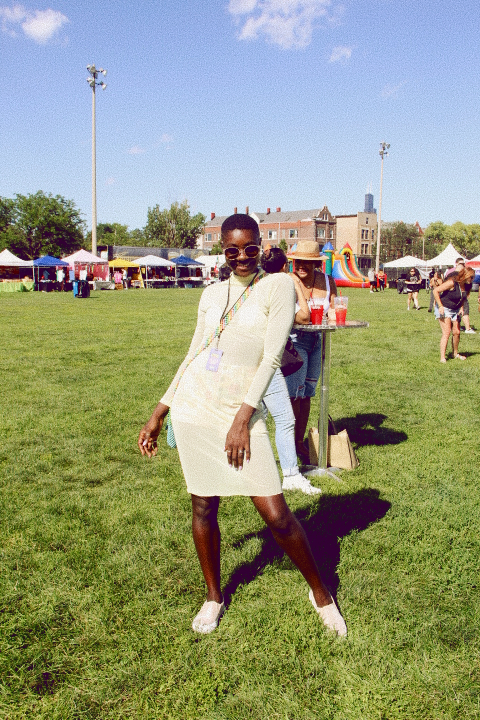
Foto x Nancy D. Sánchez Tamayo, 2023.
House music es un género que ha alquimizado completamente la música con sus ritmos oscilantes y melodías irresistibles. Ha trascendido las fronteras del tiempo y el espacio. House music is the creator and influencer of countless artists, genres, culture, dance and music festivals. It is a genre that brings people and happiness on the dancefloor, wherever that may be. Sin embargo, muchas personas no conocen de su interconexión con la historia, la cultura, y el activismo queer, which played an instrumental role in shaping its trajectory. I attended My House Music Festival on August 12-13, 2023 in search of queer people, or maybe I wanted an affirmation that house music is still queer, or maybe I just wanted people to know that house music was created, innovated, and danced by LGBTQIA people. This article is another reminder that if you enjoy any type of dance music, you owe it to queer Black people.
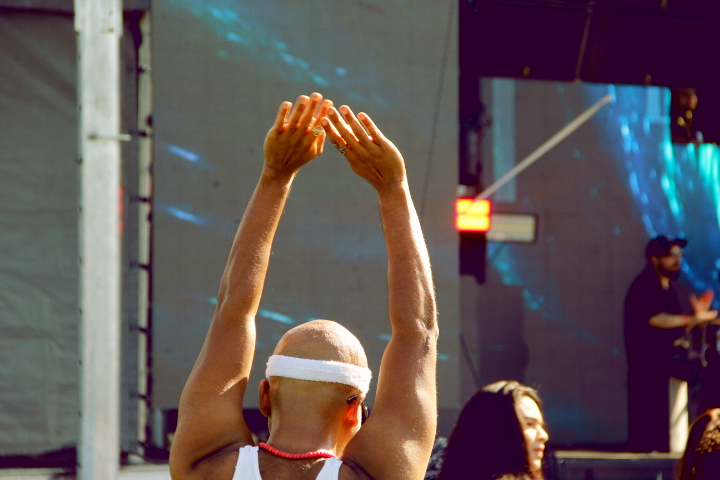
“Eran espacios seguros para la comunidad queer, un espacio que permitía a la gente expresarse sin miedo, un santuario, supongo.”
House music surgió a finales de los 70s y principios de los 80s en los clubes gay bajomundo de la gran ciudad a la que llamo hogar, Chicago, originalmente shikaakwa. These spaces were often hidden from the mainstream and could be found through word of mouth, for a good reason. Eran espacios seguros para la comunidad queer, un espacio que permitía a la gente expresarse sin miedo, un santuario, supongo. Los DJ pioneros de este movimiento, como Frankie Knuckles y Larry Levan, eran predominantemente queer personas de color. Usaron la música como una forma de trascender sus experiencias, emociones y las luchas de sus comunidades, sin saber que su magia cambiaría el mundo.
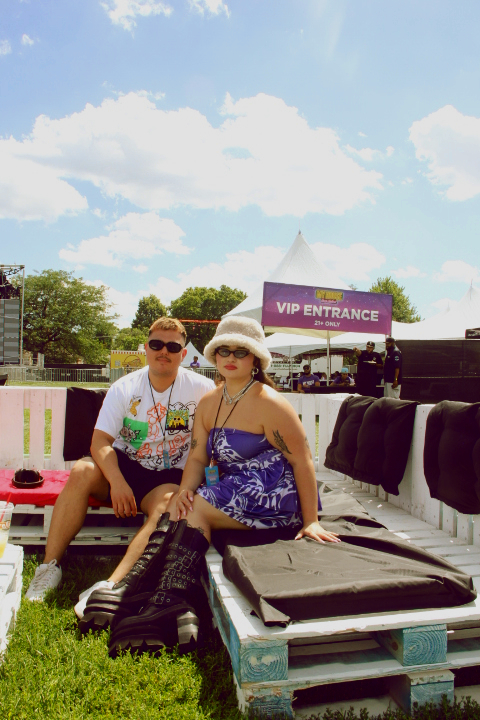
“The term “house” is believed to have originated from the Warehouse, a Chicago nightclub where Frankie Knuckles held a legendary residency.”
According to the documentary film, How House Music was Born, the term “house” is believed to have originated from the Warehouse, a Chicago nightclub where Frankie Knuckles held a legendary residency. Another theory behind its name is the fact that many house djs would create mixtapes, people would buy them, and subsequently throw a party in their house. These early house music parties held at the Warehouse were intentionally inclusive, providing a haven for marginalized people. I met a special person at My House Music Festival named Ivelice Blanco who would party at the Warehouse and would dance to Frankie Knuckles sets. Her eyes lit up, and mine too through witnessing her return to her memories of that time. It was so magical to hear her talk about how everyone seemed so happy, entranced by the music moving their bodies in a spiritual way. She spoke about how there were many trans folks in the space, it was truly a safe space that allowed existence in peace.
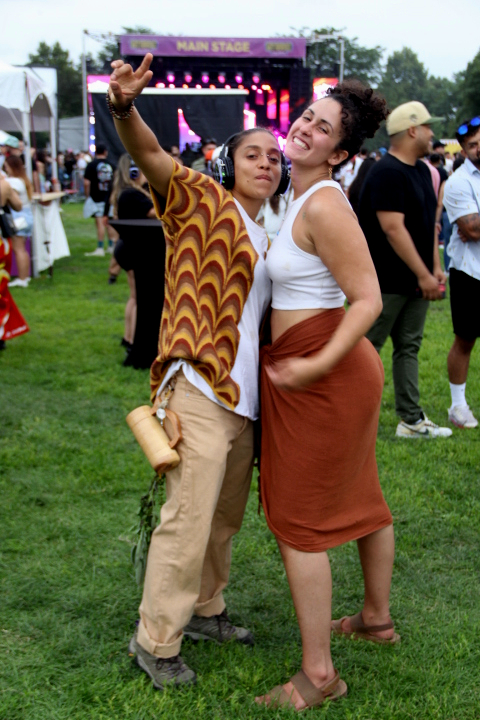
I think it’s so important to remember this history. Time can erase history and collective memory, this is dangerous. We live in a world that constantly threats people that are too different from what is deemed to be socially acceptable. Music should not be the reason why queer people and people of color should be given the freedom to exist in their own skin, that’s a right. But a world without queer people of color, would have no color. House music is a mirror of the resilience and defiance of the BIPOC LGBTQIA community.
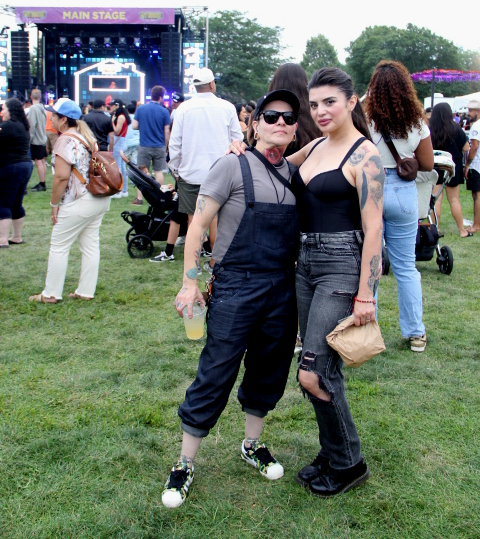
“House music se volvió como un tipo de terapia, resistencia, y una manera de comunicar esa angustia.”
House music quickly made its way to places like New York and Detroit, where LGBTQIA communities embraced it with dancing arms. Al mismo tiempo, el mundo queer estaba en la lucha por sus derechos humanos mientras se navegaba el tema de la epidemia del VIH/SIDA. Durante este tiempo la gente queer sufrio mucha discriminación y duelo por la perdida de su ser querides. House music se volvió como un tipo de terapia, resistencia, y una manera de comunicar esa angustia. Las letras de esta música eran una plataforma para las voces de la gente queer y gente BIPOC para desafiar las normas sociales y exigir aceptación. Por eso es importante recordar y honrar la historia de esta música sagrada. Es parte de la historia de nuestra resistencia como humanos. Nuestra resistencia vive en la cultura que creamos que nos ayuda a existir y encontrar paz y felicidad, aunque sea por un momento en el dance floor.
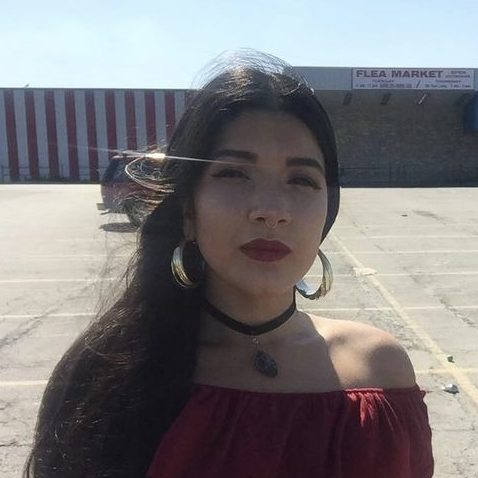
About the Author y Fotografa: Nancy David Sánchez Tamayo (he, she, they) aka La Dancy Nancy is a Chicane transdisciplinary artist and educator born and raised in the South Side of Chicago. @ladancynancy
